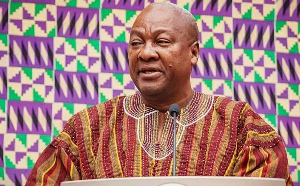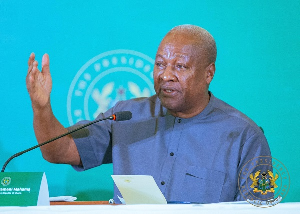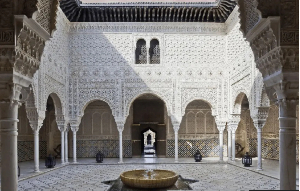At the last Census in 2010, out of the 25 million people in Ghana, almost two million people said they were Ewes. I am one of them.
I have not lived in the Volta Region since I left in 1964 to go to the University (I was 19 then and I am now 73 years old), and that would mean more than two-thirds of my life has been lived outside the Volta Region.
But I call it my home since Abutia, my home village, is in the geographical space of the Volta Region.
I do not call myself a “Voltarian” or “Voltain” or whatever computation of the word that is used by some to describe those who come from that region.
I do not regard the Volta Region as an Ewe region because I have always known the area of the Trans Volta Togoland in which I was born, to be an area inhabited not only by Ewes but also by people who were not Ewes, like all the Avatime and Likpe and Akpafu and Buem and Krachi people I went to school with.
I knew that the Peki people were definitely Ewes but they were not part of Trans Volta Togoland.
Since I tend to have strong opinions on most issues, I have always been reluctant to make any claims on behalf of groups that I could be counted as being part of.
I speak on my own behalf only.
Right now there are things being claimed on behalf of “Ewes” that I feel constrained to formally disclaim myself from.
There seems to be something called “Eweland” which is said to be at risk from the creation of an Oti Region.
One of the things I learnt as a child about the Ewes was that after their experience of a dictator king and the flight from Notsie to their present-day abodes, they vowed that never again would they subjugate themselves under one king.
That is why there are so many independent chiefdoms in present-day Eweland and there are and there is no king of Ewes or Volta Region.
All true Ewes know that. There will be a good opportunity to write a full article about the Ewes but this is not the day.
This weekend, the President of the National House of Chiefs, Togbe Afede X1V, purported to speak on behalf of the people of the Volta Region and in the interest of the peace-loving people of the region and comprehensively condemned the proposals to create the Oti Region.
It is not clear when he became a constitutional authority as well as being the financial guru he is reputed to be. He says the Commission of Enquiry into the setting up of new regions did a shoddy job.
Brave man. He says it is unconstitutional not to allow the entire Volta Region to vote in the referendum, and advises that the 1992 Constitution would be bastardised if there was a yes or no question in the referendum. Very brave man.
I do not know how Togbe Afede X1V came to acquire the power to speak on behalf of “the people of the Volta Region”. He certainly does not speak on behalf of this Ewe woman from Abutia.
I prefer the Supreme Court to decide on what is constitutional and what is not.
There is a suggestion that those who are against the creation of the Oti Region are for peace.
Now, I am not against the creation of Oti Region, but I am certainly for peace.
Indeed, the only people who have been threatening war are those who claim to be against the Oti Region.
I have never heard anyone claim the lands occupied by the people in the proposed Oti Region as being “Eweland”, and yet today, I hear these people, mostly Guans, generally accepted as having lived here longer than any other group, being referred to as “settlers”!
In the cacophony of voices in this Region creation debate in the Volta Region, everybody claims to be speaking for some majority.
For the avoidance of all doubt, this Ewe woman would want it to be understood that I would be happy with, or without an Oti Region.
I know my Ewe history well enough to state that there is no Ewe chief that can purport to speak on behalf of Ewes.
The saturated cemeteries of Accra and Paris
I hesitate now to write about funerals, cemeteries and all the paraphernalia of death.
Some people think and say I have said all there is to say about death and funerals in Ghana.
Unfortunately, I cannot avoid the subject.
If you live in Ghana, you have no choice but to talk about death and funerals all the time.
The funeral for a dear, dear brother-in-law of mine was held this past weekend and that is the trigger for this comment.
I live in Accra, have done so for much longer than I would willingly admit to.
I pay my taxes, have always done so and willingly too.
The whole concept of paying taxes rests on the understanding that you pay your taxes to the authorities and the authorities provide some services to make your life a little easier.
I can say that on balance I have paid more taxes than I have received services in this adopted city of mine.
If I should die today or tomorrow, I am old enough for my obituary notice not to attract headlines of What a Shock, but would probably be titled Celebration of Life or Call to Glory.
Unfortunately, the city of Accra is not in a state to provide the dead me with what the law obliges it to do.
I have written about the Osu cemetery on many occasions and I wish to reiterate here again that the place is a crying shame and a disgrace.
It is a concrete jungle and should be closed for health and safety reasons.
There are no paths between the graves as all the old pathways now have graves and there is no space to walk.
If you think the prices being quoted for the fancy apartments going up in Accra are outrageous, just try getting space for a grave.
A grave is more expensive than a flat.
Luckily for me, or for my relations, I am going to be cremated and my ashes taken to Abutia to be scattered and I would therefore be spared the last aggravation.
I was working out my outrage about the problem of expensive cemeteries when I came across a story which gave me pause.
It appears Paris, the French capital, has a similar problem. According to the story, even the dead cannot escape the rocketing property prices of Paris.
A shortage of burial plots means the wealthy are being asked to pay as much as €15,528 for a place in a city cemetery while the poor are being shipped out to the city outskirts.
Even fame and wealth cannot guarantee a final resting place in one of Paris’s 14 inner-city cemeteries, such as Père Lachaise, where Chopin, Balzac, Oscar Wilde, Edith Piaf and other famous names are interred.
There are about 14,000 deaths in Paris every year, with 5,000 requests to be buried at city cemeteries.
But authorities say there are now only 150 paid-for places available a year.
A report by the state auditors has declared Paris cemeteries “saturated”. Sounds like Accra to me.
Opinions of Friday, 2 November 2018
Columnist: Elizabeth Ohene















